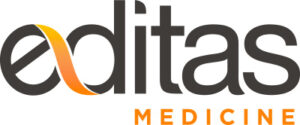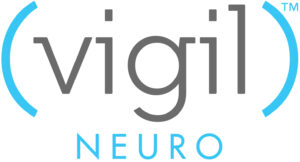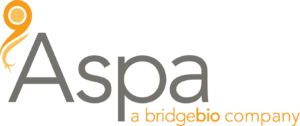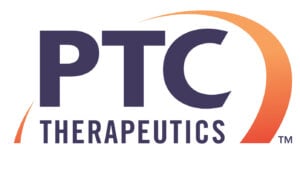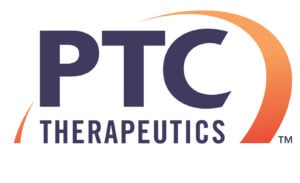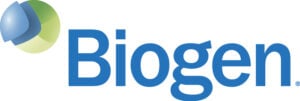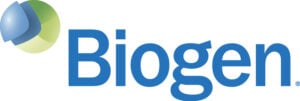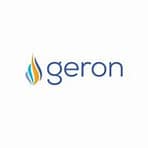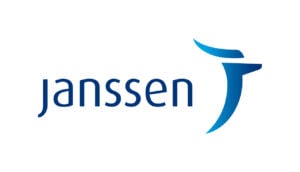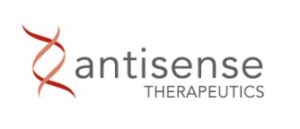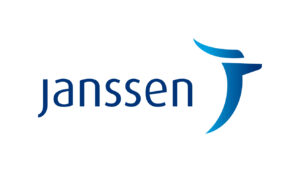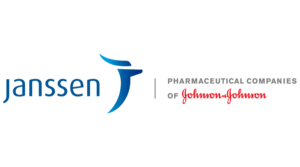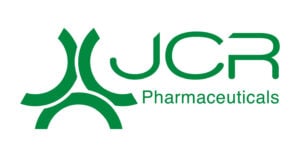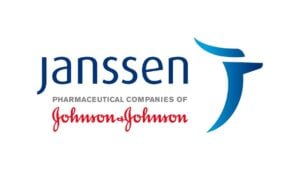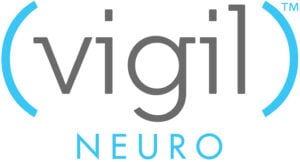Learn
RARE Clinical Trials Hub
Clinical trials are posted by members of the Global Genes RARE Corporate Alliance. They are responsible for ensuring that the studies follow all applicable laws and regulations. Global Genes staff do not verify the scientific validity or relevance of the submitted information beyond a verification of Corporate Alliance membership. Note: There may be more study sites and/or diseases associated with a clinical trial than those listed. Please click ‘Learn More’ on a post for more detailed information, including information about the status of the trial.
STEER is a Novartis research study evaluating the clinical efficacy, safety and tolerability of OAV101 IT in patients with SMA Type 2 between 2 to <18 years of age who are able to sit but never walked and have never received treatment for SMA.
This research study is a randomized, double-blind, sham-controlled, global Phase 3 clinical trial.
In STEER, patients will be randomly assigned to one of two possible treatment groups, including:
1) Treatment with OAV101 IT
2) Sham procedure, a needle prick in the lower back without the administration of OAV101 IT
Eligible patients who have the sham procedure in the first period of the study will receive OAV101 IT in the second period of the study.
Type 2 Spinal Muscular Atrophy
Posted | 2022-12-16
Estimated Completion | 2023-08-31
Last Updated | 2023-01-04
California, USA
Massachusetts, USA
Texas, USA
Kentucky, USA
New York, USA
United States
This is a Phase 2, randomized, open-label, parallel-group, multi-center study for patients with documented carcinoid syndrome requiring medical therapy including at least 1 instance of an elevated 5-HIAA level. The study includes a Screening Period of up to 12 weeks. After completion of Screening, subjects will be randomly assigned to 40 mg QD vs. 80 mg QD open-label dose groups for 8 weeks, referred to as the Randomized Treatment Phase. Following the completion of the Randomized Treatment Phase, subjects may be eligible to enter the Open-Label Extension (OLE) Phase of the study in which they will receive paltusotine for 50 weeks. At the end of the treatment period, there will be a follow-up visit 4 weeks after the last dose of paltusotine. The total duration of paltusotine treatment is up to 58 weeks or up to 15 months.
Carcinoid syndrome (Malignant carcinoid syndrome)
Posted | 2023-02-13
Estimated Completion | 2025-04-20
Last Updated | 2023-03-10
Alabama, Arkansas, California, Florida, Maryland, Massachusetts, Michigan, Missouri, Ohio, Pennsylvania, Texas
United States
Canada
United Kingdom
Germany
Italy
The ALPHA-STAR Trial is an Astria Therapeutics, Inc., global trial evaluating STAR-0215, an investigational drug, as a potential long-acting treatment for prevention of hereditary angioedema (HAE) attacks in participants with HAE types I and II. The trial will evaluate the safety and tolerability of STAR-0215, assess its effect on HAE attacks and quality of life, and study how it works in the body. Participants will be screened and enter an 8-week Run-In period to check if they had any HAE attacks. Following the Run-In period, participants will receive either one dose of STAR-0215 (Cohort 1) or two doses of STAR-0215 (Cohort 2) given three months apart via subcutaneous injection. Each group will be followed for 6 months after the final dose of STAR-0215 to assess for side effects, amount and activity of STAR-0215 in the bloodstream, and effects of STAR-0215 on HAE attacks. The study duration is around 7.5 months for Cohort 1 and around 10 months for Cohort 2.
Hereditary angioedema type 1 (HAE 1, HAE-I, Hereditary angioneurotic edema type 1)
Hereditary angioedema type 2 (HAE 2, HAE-II, Hereditary angioneurotic edema type 2)
Posted | 2023-02-13
Estimated Completion | 2027-02-01
Last Updated | 2023-10-03
United States
..
Sickle cell disease and related diseases
Posted | 2023-02-22
Estimated Completion | 2025-08-31
Last Updated | 2023-02-22
California, Colorado, Georgia, Illinois, Mississippi, New York, North Carolina, Ohio, Pennsylvania, South Carolina, Tennessee, Texas
Ontario (Ottawa, Toronto), Quebec (Montreal)
United States
Canada
This is a Phase 1/2 single-arm, open-label, multicenter study evaluating the safety and efficacy of a single unit dose of EDIT-301 for autologous hematopoietic stem cell transplant (HSCT) in subjects with severe SCD. Planned study subjects will be comprised of male and female adult subjects with severe SCD, from 18 to 50 years of age, inclusive.
Sickle cell disease and related diseases
Sickle cell anemia
Posted | 2023-03-07
Estimated Completion | 2024-03-01
Last Updated | 2023-03-07
Colorado, USA
Florida, USA
United States
This is a multicenter, open-label study to assess the safety and tolerability of VGL101 in subjects with documentation of a gene mutation in the CSF1R gene for the treatment of adult-onset leukoencephalopathy with axonal spheroids and pigmented glia (ALSP) and to evaluate the effects of VGL101 on imaging and biomarkers of disease progression in subjects with ALSP. Participants will receive infusions of VGL101 approximately every 4 weeks for 1 year.
Adult-onset leukoencephalopathy with axonal spheroids and pigmented glia (ALSP)
The main objective of this trial is to evaluate the safety, tolerability, and pharmacodynamic activity of BBP-812, an investigational AAV9-based gene therapy, in pediatric participants with Canavan disease.
Canavan disease (ACY2 deficiency, Aminoacylase 2 deficiency, Aspartoacylase deficiency, Spongy degeneration of the brain)
Posted | 2023-03-07
Estimated Completion | 2028-11-30
Last Updated | 2023-03-07
Any
United States
This study is designed to evaluate the safety, tolerability, and efficacy of AAV5 based BBP-631 in adult participants diagnosed with classic congenital adrenal hyperplasia.
Classic congenital adrenal hyperplasia due to 21-hydroxylase deficiency (Classic 21-OHD CAH)
This study will assess the effects and safety of PTC857 treatment in participants diagnosed with ALS.
Amyotrophic lateral sclerosis (ALS, Charcot disease, Lou Gehrig disease)
This study will compare the efficacy and safety of unesbulin plus dacarbazine versus placebo plus dacarbazine in participants with unresectable or metastatic, relapsed or refractory LMS who have received at least 1 prior line of systemic therapy.
Advanced Leiomyosarcoma (LMS)
Posted | 2023-04-26
Estimated Completion | 2025-05-31
Last Updated | 2023-08-23
United States
United Kingdom
Canada
Italy
Germany
Viridian Therapeutics is sponsoring phase 3 clinical study, THRIVE, exploring an investigational study drug called VRDN-001 as a potential new treatment for people living with thyroid eye disease (TED). In THRIVE, researchers are looking to better understand the safety of the study drug and how it may benefit adults, 18 years or older, diagnosed with active TED.
THRIVE is a randomized, double-masked, placebo-controlled, global clinical study. Participants will attend study visits involving medical tests and exams over the course of about 52 weeks. During the first 15 weeks, participants will receive 5 infusions of study drug or placebo, once every 3 weeks. Infusions are given intravenously (IV), meaning through a vein in the arm, by a trained professional. For the last 37 weeks of the study, all participants will be monitored.
Participants who do not experience benefit after the first 15 weeks may be eligible to enter a separate open-label extension study to receive the study drug.
Thyroid eye disease (TED)
Posted | 2023-05-09
Estimated Completion | 2027-06-14
Last Updated | 2023-05-09
Multiple States
United States
Multiple Countries
If you or your child has been diagnosed with spinal muscular atrophy (SMA), the ASCEND Study may interest you. This clinical research study is investigating how safe and how well an investigational higher dose of nusinersen may work in participants with SMA who were previously treated with risdiplam.
Currently screening people ages 15 to 50 years old who have a confirmed diagnosis of SMA to take part in a clinical research study.
Spinal Muscular Atrophy (SMA)
Posted | 2023-05-09
Estimated Completion | 2027-08-07
Last Updated | 2023-05-09
Multiple States
United States
Multiple Countries
The ATLAS Study is part of a larger clinical research effort to evaluate the safety, dosing, and efficacy of an investigational drug in people who have a confirmed SOD1 gene variant. This study will evaluate whether starting an investigational drug early (before clinical signs or symptoms that definitively indicate onset of ALS) will delay the appearance of signs or symptoms of ALS compared to placebo and/or reduce the loss of function over time as compared with starting the investigational drug once signs or symptoms appear. The investigational drug (BIIB067) is designed to target the SOD1 gene and potentially reduce the level of SOD1 protein in people with ALS who carry a confirmed SOD1 gene variant.
Amyotrophic lateral sclerosis (ALS, Charcot disease, Lou Gehrig disease) Superoxide Dismutase 1 Mutation, (SOD1)
Posted | 2023-05-24
Estimated Completion | 2025-08-31
Last Updated | 2023-05-24
New York, USA
NA
NA
NA
US
Italy
Brazil
Bulgaria
This is a multicenter study with 2 arms, and will include 3 phases: a) screening phase of up to 28 days before randomization during which participants will complete a 14-day washout period from all prior therapies including JAK-inhibitor treatment, and the participant's eligibility will be reviewed; b) treatment phase, from randomization until study treatment (imetelstat or BAT) discontinuation; and c) post treatment follow-up phase, that begins when the participant discontinues treatment, and will continue until death, lost to follow-up, withdrawal of consent, or study end, whichever occurs first. Participants will be randomized (2:1) into 2 Arms (Arm A will receive imetelstat and Arm B will receive BAT). Participants who meet progressive disease criteria and discontinue BAT, may crossover to receive imetelstat treatment after sponsor's approval.
Primary myelofibrosis (PMF)
Post-polycythemia vera myelofibrosis (PPV-MF)
Post-essential thrombocythemia myelofibrosis (PMF)
Posted | 2023-05-25
Estimated Completion | 2025-12-31
Last Updated | 2023-05-25
California, USA
Colorado, USA
Kansas, USA
Michigan, USA
Pennsylvania, USA
United States
Janssen Research and Development, LLC is conducting vibrance-mg, a global clinical trial for pediatric patients from 2 to less than 18 years of age with generalized Myasthenia Gravis (gMG) whose disease is inadequately controlled using protocol-allowed, stable, standard-of-care therapy. The purpose of this study is to determine if nipocalimab, an investigational drug, is safe and effective for treating pediatric gMG, and to determine how long nipocalimab stays in and acts within the body. Participants will undergo a screening period followed by a 24-week treatment period. To be eligible for the vibrance-mg study, participants must be aged from 2 to less than 18 years of age, have a diagnosis of gMG and struggling with gMG symptoms despite receiving stable standard of care therapy.
Pediatric Myasthenia Gravis
Posted | 2023-08-09
Estimated Completion | 2025-07-31
Last Updated | 2024-02-19
Australia
Bulgaria
Turkey
United Kingdom
Serbia and Montenegro
This Phase IIb study is a two-part, multicenter study carried out by Antisense Therapeutics to evaluate the efficacy, safety, pharmacokinetics and pharmacodynamics of ATL1102 and will enroll 45 non-ambulant boys with Duchenne Muscular Dystrophy (DMD) aged 10 to <18 years old.
During the 24-week randomised, double-blind, placebo-controlled treatment period (Part A) participants will be enrolled and randomised to receive either ATL1102 25mg, ATL1102 50mg or matched placebo in a 1:1:1 ratio given as a weekly subcutaneous injection.
Participants will then continue to the 24-week Open Labelled Treatment Period (Part B) and continue to receive ATL1102 25mg or ATL1102 50mg for a further 24 weeks. Participants on placebo in Part A will transition to ATL1102.
The study will consist of a 4-week screening period, 24-week randomised, double-blind, placebo-controlled treatment period (Part A), 24 week open label treatment period (Part B) and 16 week follow up period.
Duchenne muscular dystrophy (DMD, Severe dystrophinopathy, Duchenne type)
Posted | 2023-06-27
Estimated Completion | 2026-04-17
Last Updated | 2023-08-14
Arizona, USA
California, USA
North Carolina, USA
Ohio, USA
Florida, USA
United States
Janssen Research and Development, LLC is conducting Vivacity MG3, a global clinical trial for adults diagnosed with generalized Myasthenia Gravis (gMG) who are struggling with gMG symptoms despite receiving stable MG therapy. The purpose of this study is to see if nipocalimab, an investigational drug, is safe and effective for treating adults with gMG and to find out how long nipocalimab stays in and acts within the body. Participants will undergo a screening period followed by a 24-week treatment period, where they will be randomly assigned to receive either nipocalimab or placebo. During the open-label extension period, all participants will receive nipocalimab. You may be eligible to participate if you: • Are 18 years of age or older • Have been diagnosed with gMG • Are struggling with gMG symptoms despite receiving stable MG therapy. Additional eligibility criteria are available on ct.gov (NCT04951622 ).
Adult-onset myasthenia gravis (Adult-onset acquired myasthenia, Adult-onset autoimmune myasthenia gravis)
Posted | 2023-08-25
Estimated Completion | 2026-05-11
Last Updated | 2023-08-25
North America
South America
Europe
Asia-Pacific
Janssen Pharmaceuticals is conducting a phase 2/3 clinical trial, the ARISE Study, to evaluate the
safety and efficacy of an investigational medication in adults with active CIDP. Participants must be
an adult with a diagnosis of CIDP, and either be willing to stop treatment of intravenous
immunoglobulin, subcutaneous immunoglobulin, and/or corticosteroids, OR be newly diagnosed, and
have never been treated, or have not taken medication for CIDP for at least 3 months before enrolling.
In the first portion, if eligible, you will receive the investigational medication through an IV infusion.
If you qualify for a second part of the study, you will be randomly assigned to either the investigational
medication or a placebo (no active drug). Participants who complete the first two parts of the study
and are responding well may qualify for additional investigational medication. Study required
medication and medical care will be given at no cost. Learn more here: Janssen Global Trial Finder.
Chronic inflammatory demyelinating polyneuropathy (CIDP, Chronic inflammatory demyelinating polyradiculoneuropathy)
Posted | 2023-09-12
Estimated Completion | 2026-01-31
Last Updated | 2023-09-12
United States
United Kingdom
France
Germany
Spain
The STARLIGHT Study is a Phase 3 clinical research study to evaluate an investigational drug (a drug not yet approved for clinical use) to see if it is safe and whether it may improve behavioral and cognitive function in children with Hunter syndrome, also known as MPS II. The study will compare the effects of the investigational drug to the current standard-of-care treatment. Approximately 80 participants will be enrolled, and they may be compensated for travel and expenses. Study participants who qualify and meet all eligibility criteria will receive either the investigational drug or the standard-of-care treatment, which is enzyme replacement therapy (known commercially as Elaprase®), through weekly IV infusions (through a vein). Participants will also undergo a variety of tests and procedures during the study, such as blood and image tests, cognitive testing, and lumbar punctures.
Mucopolysaccharidosis type 2 (Hunter syndrome, Iduronate 2-sulfatase deficiency, MPS2, MPSII, Mucopolysaccharidosis type II)
Posted | 2023-11-24
Estimated Completion | 2025-12-31
Last Updated | 2023-11-27
United States
Belgium
France
Germany
South Korea
The DOLPHINS-2 study is a phase 2 clinical research study to evaluate an investigational drug (a drug not yet approved for clinical use) to see if it is safe and whether it may improve symptoms in adults with short bowel syndrome. The study will compare the effects of the investigational drug to a placebo.
Approximately 18 participants will be enrolled, and they may be compensated for travel and expenses. Study participants who qualify and meet all eligibility criteria will receive either the investigational drug or placebo through a monthly injection under the skin. The chance of receiving placebo is one in six. Participants will also undergo a variety of tests and procedures during the study, such as blood and urine tests, an electrocardiogram (ECG, a simple test that can be used to check your heart's rhythm and electrical activity), physical exam and vital signs (blood pressure, temperature, heart rate, breathing rate).
Short bowel syndrome
Secondary short bowel syndrome
Posted | 2023-11-30
Estimated Completion | 2025-09-30
Last Updated | 2023-12-01
United States of America
Viridian Therapeutics is sponsoring a phase 3 clinical study, THRIVE-2, exploring an investigational study drug called VRDN-001 as a potential new treatment for adults, 18 years or older, living with chronic thyroid eye disease (TED). THRIVE-2 is a randomized, double-masked, placebo-controlled, global clinical study. Participants will be randomly assigned in a 2:1 fashion to receive either the study drug or placebo by infusion, respectively. Infusions are given intravenously (IV) through a vein in the arm by a trained professional. Participants will receive 5 infusions over a 12-week period, 1 infusion given every 3 weeks, from week 3 to week 15 of the study. For the remaining weeks of the study, all participants will be monitored. If participants do not respond to the 12-week treatment period, based on eye assessments, they may have the opportunity to join an extension study where all participants will receive VRDN-001 for an additional 12-week treatment period.
thryoid eye disease
TED
Posted | 2024-01-19
Estimated Completion | 2026-11-30
Last Updated | 2024-01-26
California, USA
Georgia, USA
Utah, USA
Michigan, USA
Columbus
United States
This is a multicentre, randomised, double-blind (DB), parallel-group, placebo-controlled, 24-week Phase III study to compare the efficacy and safety of benralizumab versus placebo administered by SC injection Q4W in patients with hypereosinophilic syndrome (HES). This study comprises 2 distinct periods (together defined as the 'main study'): A 24-week, DB treatment period, during which patients will be randomised to receive either benralizumab or placebo, in addition to their prior stable HES background therapy, and an open-label extension (OLE) period, during which all patients will receive benralizumab. Patients will continue to be recruited until approximately 38 patients have had their first HES worsening/flare during the DB treatment period at which point the data cut-off for the primary database lock (DBL) will occur.
Hypereosinophilic syndrome (HES)
Idiopathic hypereosinophilic syndrome
Lymphocytic hypereosinophilic syndrome (HES-L, Lymphocytic variant HES, Lymphoid HES)
Single-Organ (SO-HES)
Eosinophilic Granulomatosis With Polyangiitis (EGPA)/HES Overlap
Posted | 2024-01-27
Estimated Completion | 2024-06-30
Last Updated | 2024-01-31
Maryland Indiana Minnesota California Texas
United States
Japan
Canada
France
Italy
Calcilytix Therapeutics, Inc., a BridgeBio company, is conducting a global Phase 3 study (CALIBRATE) that aims to evaluate the efficacy, safety, and tolerability of encaleret, in comparison to standard-of-care (SoC) (calcium and active vitamin D) in adults with autosomal dominant hypocalcemia type 1 (ADH1). Study participants may be able to join the study if they are 16 years of age or older (18 years or older in the EU) and have a confirmed diagnosis of ADH1. The study includes a screening period of up to 6 weeks followed by an up to 15 week SoC optimization phase. After completion of SoC optimization phase, study participants will enter a 1 month SoC Maintenance period. Eligible study participants will then be randomly assigned to receive encaleret or SoC for approximately 6 months. Following completion of the study, participants may choose to enter the optional long-term extension portion of the study where all participants will receive encaleret for up to 4 years.
Autosomal Dominant Hypocalcemia Type 1 (ADH1)
Genetic Hypoparathyroidism
Autosomal Dominant Hypoparathyroidism
Familial Isolated Hypoparathyroidism
Familial Hypercalciuric Hypocalcemia
Posted | 2024-03-06
Estimated Completion | 2027-12-14
Last Updated | 2024-03-06
United States
Spain
UK
Poland
Italy
ENERGY is a research study evaluating the efficacy and safety of investigational medication in Adults with Warm Autoimmune Hemolytic Anemia. This is a phase 2/3 24-week double-blind, placebo-controlled trial with an open-label extension period. Eligible participants will be randomized to placebo or the investigational medication (2 dose levels) during the double-blind period and all participants will receive the investigational medication (2 dose levels) during the open-label extension period.
Autoimmune hemolytic anemia, warm type (Warm AIHA, wAHA, wAIHA)
Posted | 2024-03-20
Estimated Completion | 2027-06-01
Last Updated | 2024-03-20
Florida, USA
Pennsylvania, USA
California, USA
Colorado, USA
Massachussetts
United States
United Kingdom
Germany
The Netherlands
Canada
The main purpose of the study is to learn more about how ALSP occurs and how the disease affects people over time. Study participants will not receive any investigational drugs as part of this study and will continue their standard of care treatment during the study.
Vigil Neuroscience is developing an investigational drug, iluzanebart (VGL101), for the treatment of people with ALSP. Our goal is that this natural history study will provide information that may help with the development of future treatments for ALSP, including iluzanebart.
To participate in this study, individuals will need to meet the following main criteria*
18 years of age or older
Documentation of a gene variant in the CSF1R gene
Diagnosed with ALSP and have MRI findings consistent with ALSP
*There are additional inclusion and exclusion criteria for this study.
Adult-Onset Leukoencephalopathy with Axonal Spheroids and Pigmented Glia (ALSP)
Posted | 2024-04-29
Estimated Completion | 2024-12-31
Last Updated | 2024-04-29
Multiple states and virtual
United States
United Kingdom
Ireland
Australia
New Zealand
This study will evaluate the effectiveness and safety of ZYN002, a clear cannabidiol gel applied to the skin (called transdermal application) twice a day for the treatment of behavioral symptoms of Fragile X syndrome (FXS). Eligible participants will participate in up to an 18-week study treatment period, where all participants will receive placebo or active study drug. Patients ages 3 to 22 years, will be eligible to participate if they meet all entry criteria.
ZYN002, is the first and only investigational pharmaceutically-produced cannabidiol, a non-psychoactive cannabinoid, formulated as a patent-protected permeation-enhanced gel for transdermal delivery through the skin and into the circulatory system. ZYN002 is being developed for patients suffering from Fragile X syndrome and certain refractory epilepsies, 22Q deletion syndrome, and autism spectrum disorder (ASD). ZYN002 is an experimental treatment.
Fragile X syndrome
FXS
Posted | 2024-05-06
Estimated Completion | 2028-06-01
Last Updated | 2024-05-06
Amsterdam
Le Kremlin-Bicêtre
Netherlands
France
ORBIT is a Phase 1b, open-label multiple-ascending dose (MAD) study of an investigational drug called ION356 in approximately 24 people with Pelizaeus-Merzbacher Disease (PMD) and genetic confirmation of proteolipid protein 1 (PLP1) gene duplication. Additional enrollment criteria apply. ORBIT will have 2 parts: a 48-week multiple-ascending dose (MAD) part followed by an open-label long-term extension (LTE) part of 109 weeks. There is no placebo or sham arm in this study, meaning that people enrolled in the study will receive doses of ION356 during both the MAD and LTE parts of ORBIT. For more information about ORBIT speak with your doctor or visit: https://clinicaltrials.gov/study/NCT06150716
Pelizaeus-Merzbacher Disease (PMD)
Global Genes does not exchange any identifying information with study sponsors or researchers. For more information on data privacy, please view our Terms and Conditions.




